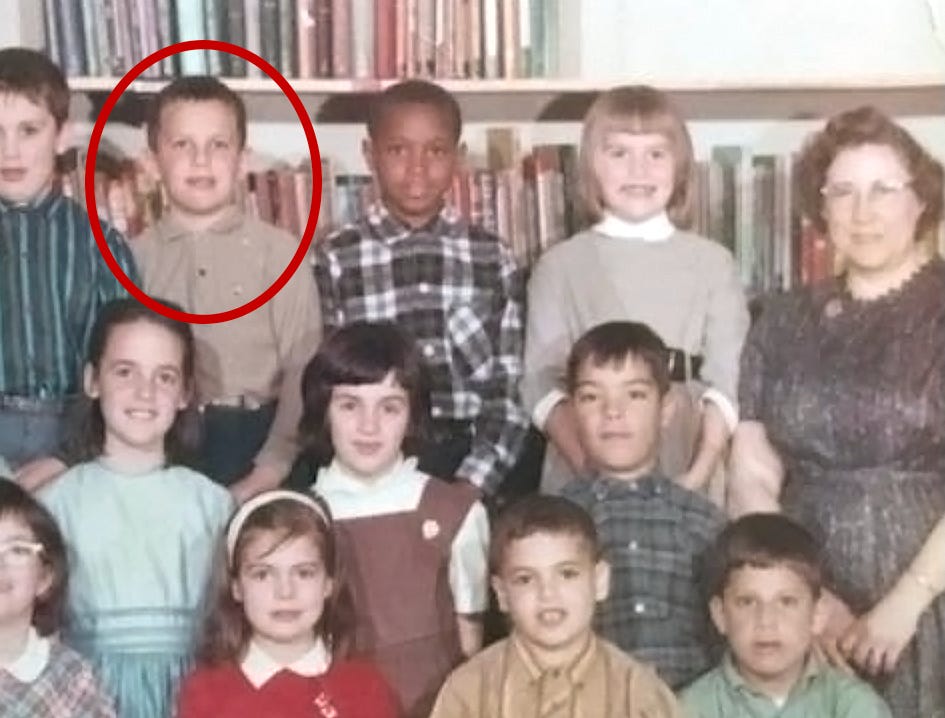In third grade I told my teacher, Mrs. Lord, that I wanted to be a writer. She suggested keeping a diary. I ran home and asked my mother for a notebook and pen. Then I wrote down my name. Then gradually I began to write different things. And then, over time, I wrote enough to think of myself as a writer.

Everything in this narrative is true, though I doubt you would conclude from this passage that I had the right ambition. If you find yourself relying on “and then” to connect events or actions, Aristotle has a cure.
In his Poetics—a book that launched a thousand motion pictures—Aristotle describes the episodes in a story as a series of complications and resolutions, of “tying” (desis) and “untying” (lusis). Think of these as event connections. The character gets tangled in a problem. He tries to untangle himself, which leads to another knotty problem, and so on. The tying and untying form the connections between episodes and make the character himself more interesting.
Let’s tell the story again, this time with the tying and untying.
In third grade I told my teacher, Mrs. Lord, that I wanted to be a writer. “Writers write every day,” she said. “You should keep a diary.”
I said, “I can’t keep a diary. I’m a boy. Boys don’t have diaries.” (Tie)
“Keep a journal, then.” (Untie)
I ran home and asked my mother for a notebook and pen. But when I sat down to write, I had no clue what to write about. (Tie) Next day, I asked Mrs. Lord what to do.
“Write about yourself,” she said. (Untie)
After school that afternoon I sat down again, determined to write about myself. The problem was, I was a normal boy in a normal suburb of Philadelphia in normal 1963. (Tie) Everything around me was less interesting than my comic books. I was uninteresting. I wrote down my name, got up sadly, and played with my plastic soldiers. Still, writers write every day, so after school each day I sat down to write about myself, trying to find something—anything—interesting about myself to write.
After a couple discouraging weeks, I overheard one of the teachers utter a profound philosophical statement: You are what you eat. Eureka! (Untie) If I was what I ate, and keeping a journal meant writing about myself, then I could write what I had for lunch each day. That afternoon, I sat down and wrote myself for the ages: Baloney sandwich and milk.
The next day I did the same thing, writing down what I had for lunch: Baloney sandwich and milk. And I realized that I ate the same lunch every day, even on weekends. (Tie) Still, I kept at my journal, wondering how this would make me a writer.
A classmate named Woody Woodward saved me. At lunch in the cafeteria he balanced an open half-pint carton of milk on his head and it spilled, sending a marvelous white cascade down his face, which of course was hilarious. (Untie) When I wrote in my journal that afternoon, I discovered context. I was more than what I ate; I was what I experienced, and how I felt about that experience, while I ate.
I called my journal Lunch and have been keeping it daily for the past sixty years.

That second account, while a good deal wordier than the first and-then version, reveals a character who unfolds through a series of Aristotelian “episodes.” (The word originally referred to the action—the tying and untying—in a Greek tragedy that took place between choruses.) My first version tells a vanilla story with a vanilla character. The second shows a little boy untying problems in the quest for his writerly soul. Both stories are entirely true. But which character seems more compelling, even truer?
Narrative tools make persuasion more palatable. Episodes, well connected through likely or inevitable progressions, make the character himself more believable. This is why it helps to tell a story. You can play the hero of your life’s tale if you make it a good one.
Or, if you’re a comedian, the anti-hero. Anti-heroes make more money.




Love love love this! Tying and untying—what a terrific show-and-tell for me and for the students I’m teaching!!